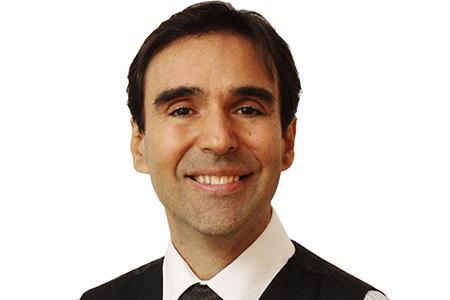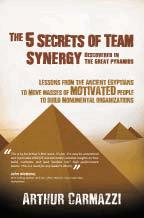Lessons In Leadership: "SKILL"
By Arthur Carmazzi, best-selling author, international speaker/trainer, and founder of the Directive Communication Organizational Development Psychology
 There are those who would have you believe that leadership is a set of skills, a specific recipe that one can follow and apply to inspire others to achieve greatness. Yet this magic formula that is considered the holy grail of productivity, management, and motivation seems consistently elusive. Yet multiple statistics indicate that training and human capital development does considerably and positively affect an organization’s bottom line.
There are those who would have you believe that leadership is a set of skills, a specific recipe that one can follow and apply to inspire others to achieve greatness. Yet this magic formula that is considered the holy grail of productivity, management, and motivation seems consistently elusive. Yet multiple statistics indicate that training and human capital development does considerably and positively affect an organization’s bottom line.
So if training works, why does leadership training often fail to improve a manager’s ability to lead (also a statistic)? Where is the discrepancy between training success and leadership development?
The myth begins with the idea that competencies are directly related to specific skills. And that “skill” is a set of rules and actions — “Do this, get that.” Since much of the leadership theory comes from either experience or a statistical analysis of successful leaders, herein lies the problem!
SPECIFIC SKILLS DO NOT EQUAL LEADERSHIP COMPETENCY
In 2013 we did a research study at DCI with a 70 company sample of poor, average, good, and great leaders. Our findings indicated that the only consistency among “great” leaders was an awareness of self and how they were affecting the people around them. Those who were considered “poor” leaders lacked that awareness.
A GREAT LEADER IS NOT CONFINED TO A SET OF ACTIONS THAT CAN BE COPIED
Another DCI study showed when individuals tried to emulate specific leadership models, 47 percent appeared inauthentic, and their leadership effectiveness varied from up to 8 percent less effective to marginally improved based on peer evaluations over one month.
APPLYING STANDARD LEADERSHIP MODELS IS NOT AN EFFECTIVE WAY TO DEVELOP LEADERS
Communication is a foundational skill for successful leadership, but each person has and applies different skill sets in different ways.
THE SOLUTION:
Each potential leader must meticulously develop their own personalized ideal leadership identity by discovering who they are at their best in different environments (e.g., at home, with friends). Next, potential leaders must reinforce and practice this leadership identity until it becomes natural in all environments.
NO CHANGE REQUIRED
 When a potential leader is aware of how and when to access their better self — and see the results in real time — they become more effective.
When a potential leader is aware of how and when to access their better self — and see the results in real time — they become more effective.
WHAT TO DO NOW
We should stop training leadership skills and focus on a leadership experience that supports an ideal leadership identity. Create a constant feedback system for potential leaders and implement on-site coaching to have real-time awareness of actions. Finally, model personal successes and applicable role model successes that are congruent with potential leaders’ current unrefined leadership characteristics.
